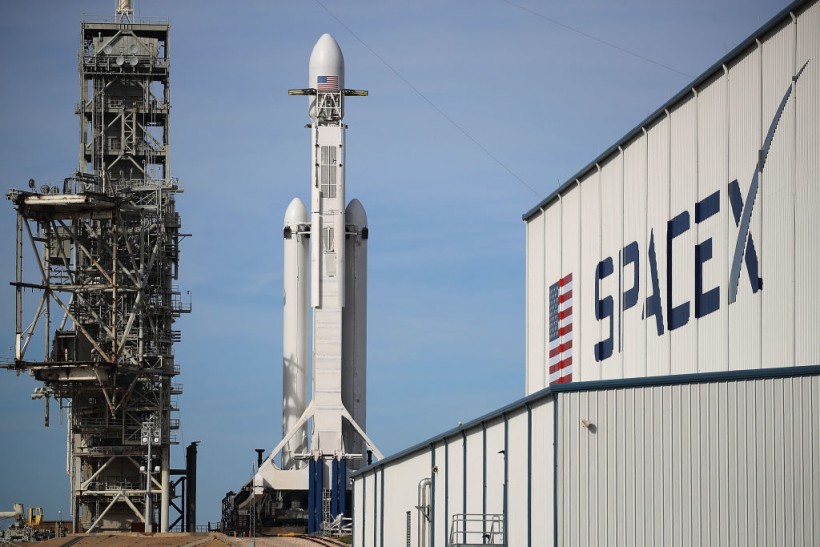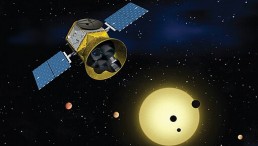On December 11, a SpaceX Falcon Heavy rocket was set to launch the US Space Force's X-37B space plane after a one-day weather delay. However, the planned Monday night launch of the secretive X-37B on its seventh mission and its inaugural flight atop a Falcon Heavy rocket has been postponed by at least 24 hours.

The SpaceX Falcon Heavy rocket sits on launch pad 39A at Kennedy Space Center as it is prepared for tomorrow's lift-off on February 5, 2018 in Cape Canaveral, Florida.
SpaceX Reschedules USSF-52 Falcon Heavy Launch Due to Setbacks
SpaceX has initially rescheduled the launch of the USSF-52 mission on the Falcon Heavy rocket for Monday, December 11, citing improved weather conditions with a 70% favorable forecast for liftoff. The postponement was announced on X (formerly Twitter) with SpaceX indicating the additional time would be used for pre-launch checkouts.
However, the launch faced setbacks as SpaceX encountered a ground-side issue less than an hour before the planned liftoff on Monday. SpaceX did not provide specific details about the ground-side issue that prompted the delay.
The company decided to stand down from the launch, stating that the vehicle and payload were in good condition, and the team would reset for the next launch opportunity, which was no earlier than the following night.
If the launch takes place on Tuesday night, December 12, it is scheduled for a 10-minute window starting at 8:14 p.m. from Launch Pad 39-A at NASA's Kennedy Space Center. The weather forecast for this window indicated a 60% chance of favorable conditions, according to Space Launch Delta 45's weather squadron.
The USSF-52 mission is the seventh for the X-37B spaceplane, marking its first launch atop a Falcon Heavy, a powerful rocket comprised of three reusable Falcon 9 rocket cores. The delays occurred on what was initially planned as a historic mission for the X-37B and the Falcon Heavy.
READ ALSO: Falcon Heavy Soars Again: Witness History With SpaceX's Seventh Launch of the Mighty Rocket
Falcon Heavy Boosts X-37B for OTV-7 Mission with Enhanced Mass-to-Orbit Capabilities
The X-37B has been launched five times using ULA Atlas V rockets and once with a SpaceX Falcon 9. Space Force said in a recent press release that choosing Falcon Heavy, with three Falcon 9 boosters, offers superior mass-to-orbit capabilities, potentially enabling higher and farther orbits for the upcoming X-37B mission, the Orbital Test Vehicle-7 (OTV-7).
The choice of Falcon Heavy may be driven by payload mass, given its greater lift capacity. The X-37B's cargo bay, designed for experiments, could accommodate a secondary mission payload necessitating Falcon Heavy's capabilities.
Mission details, especially for the X-37B, are classified, but the USSF-52 mission involves operating in new orbital regimes. The unclassified "Seeds-2" experiment by NASA, testing radiation effects on plant seeds during extended spaceflight, is part of this mission.
Falcon Heavy's Sunday launch marks its ninth mission and the fifth flight for the supporting side boosters, previously used for NASA's Psyche probe in October 2022. The X-37B missions have shown a trend of increasing duration, with the most recent, OTV-6, lasting 908 days and concluding in November 2022.
RELATED ARTICLE: Falcon Heavy Rocket of SpaceX Embarks on Classified Mission USSF-67 for the United States Space Force
Check out more news and information on SpaceX in Science Times.














